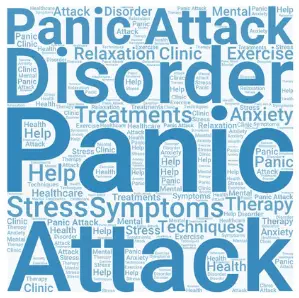There are many different types of sleep disorders, and one of them is a panic attack when sleeping. This can be a very frightening experience, as it can feel like you are about to die. It is essential to seek help if you think you may be suffering from this disorder, as you can treat this.

There are a few reasons panic attacks during sleep can be particularly dangerous. First, people who experience them may not know they are happening. Hence may not be able to take steps to calm themselves down. Second, panic attacks can lead to disruptive behaviors such as thrashing or yelling. These can wake up others in the house and cause them to worry. Panic attacks can cause physical symptoms such as a racing heart or shortness of breath. These can be alarming and dangerous. If you experience panic attacks during sleep, you must talk to a doctor or mental health professional to get help managing them.
A survey of 1,000 people found that almost one-third of respondents have experienced a panic attack during sleep. Women were more likely to experience panic attacks during sleep than men. People who had experienced a traumatic event were also more likely to have panic attacks during sleep. People with anxiety disorders were also more likely to report them.
There are a few different things that can cause panic attacks while sleeping. One possibility is sleep apnea when someone stops breathing for short periods during sleep. This can cause the person to wake up suddenly and feel panicked. Another possibility is night terrors, which are a type of sleep disorder that causes people to wake up feeling terrified. Finally, some people fear sleeping, leading to panic attacks when they eventually drift off. If you’re experiencing panic attacks while sleeping, it’s important to talk to a doctor or mental health professional. This can help you to figure out what might be causing the panic attacks.
Many people suffer from panic attacks during sleep. This can be a very frightening experience, but there are some simple steps that you can take to help ease the symptoms. First, try to stay calm and relaxed. It may be helpful to practice some deep breathing exercises or meditation before bedtime. If you start to feel a panic attack, try to focus on something else. Try to distract yourself from the thoughts that are causing the anxiety. It is also important to establish a regular sleep schedule and stick to it as much as possible. This will help your body and mind feel more rested and less anxious. Finally, if you are having trouble sleeping due to panic attacks, talk to your doctor. He can guide you with medications or therapy to help you get the rest you need.
In conclusion, panic attacks during sleep can be a very frightening and dangerous experience. They can cause physical symptoms such as a racing heart or shortness of breath. They can also lead to disruptive behaviors such as thrashing around or yelling. If you experience panic attacks during sleep, you must talk to a doctor or mental health professional.
